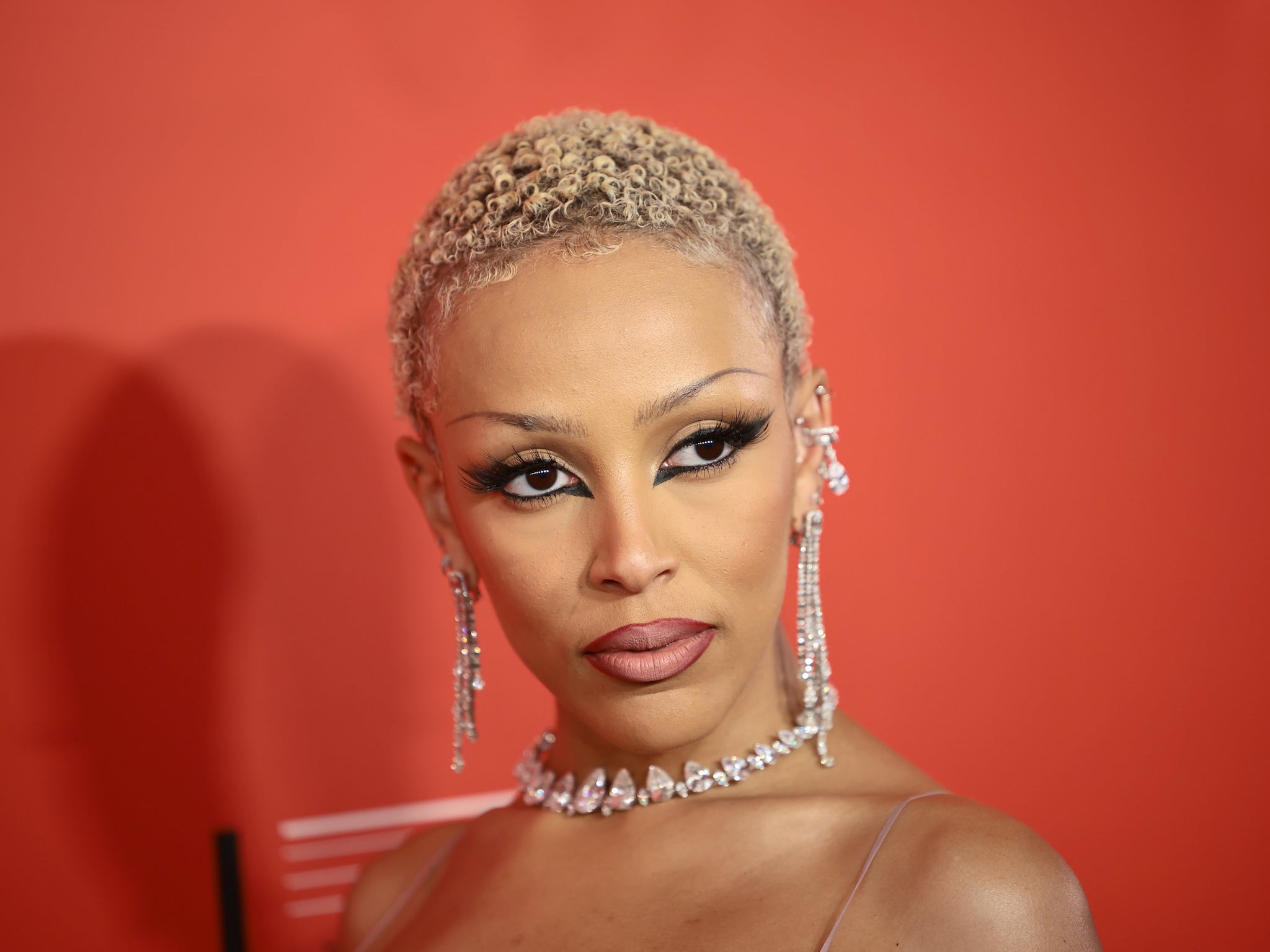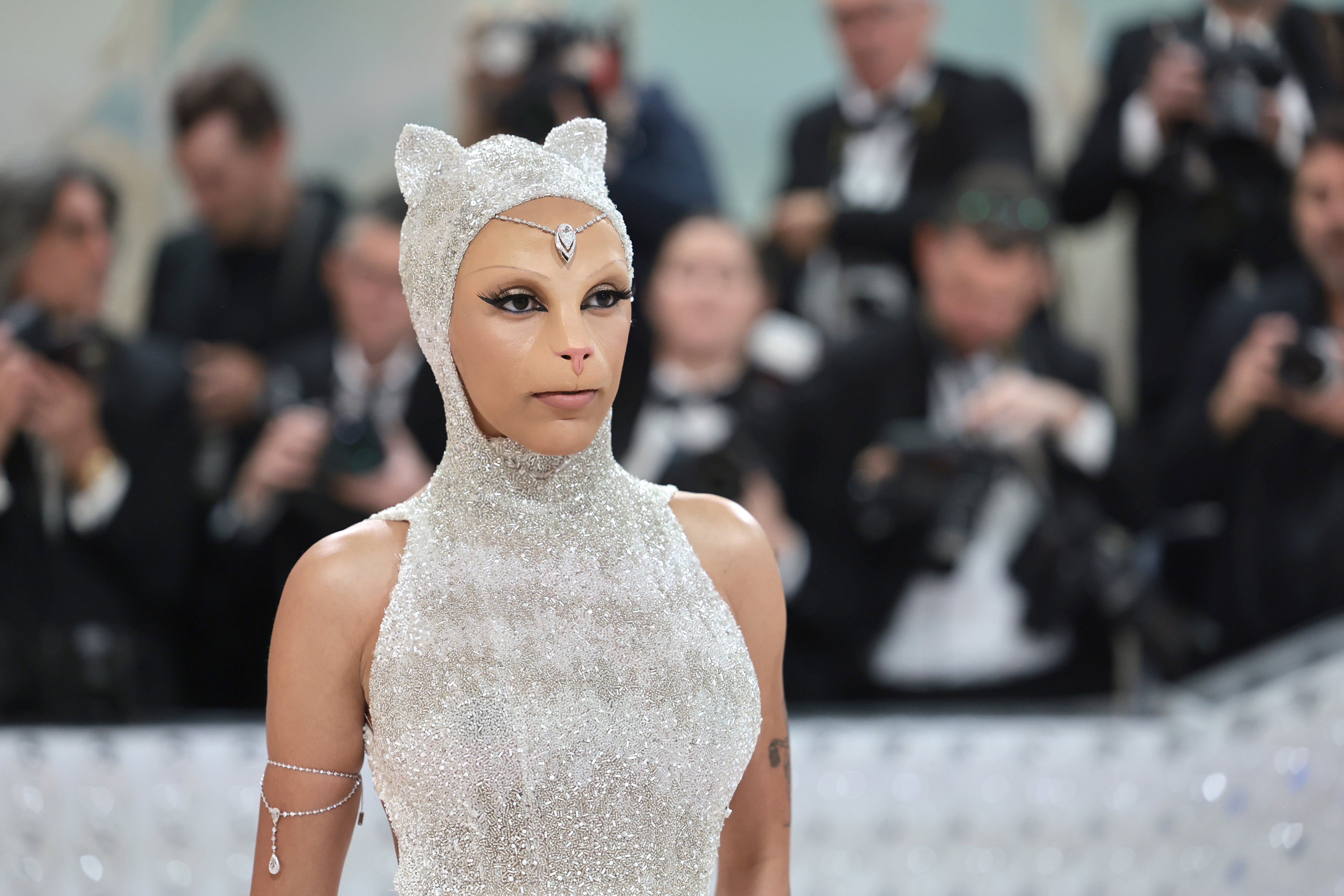Doja Cat may have lost 250,000 followers – but the rapper is right to call out ‘creepy’ fans who get too close
The singer has always had a fraught relationship with her fans. This most recent controversial interaction is not a surprise, writes Laura Barton, but it could herald the start of stars retreating from the front lines of social media

It is rare that any star would regard the sudden loss of 250,000 social media followers as a victory, but in the case of Doja Cat, the shedding of hundreds of thousands of fan accounts in just a few short days has been nothing short of a triumph.
Over the past few years, the Californian rapper and singer’s devotees have assembled themselves into a battalion of sorts, labelling themselves “Kittenz”, the better to show their allegiance. Doja Cat has rarely engaged with the term until last weekend, when she took to Threads (Meta’s answer to Twitter) to address the matter in a series of since-deleted tweets. “My fans don’t get to name themselves s***,” the 27-year-old announced. “If you call yourself a ‘Kitten’ or f***ing ‘Kittenz’ that means you need to get off your phone and get a job and help your parents with the house.” The Kittenz were aghast. One implored their hero to reassure her fans she still loved them. “I don’t tho cuz I don’t even know y’all,” the rapper replied, describing the extreme levels of worship as “creepy as f***.”
Doja Cat’s relationship with fame has long been highly charged. Earlier this year, her track “Attention” catalogued her frustration with the endless tittle-tattle and dead-eyed devotion that so often hovers around successful figures: “Talk your s*** about me, I can easily disprove it, it’s stupid/ You follow me, but you don’t care about the music.” We’re accustomed to celebrity strops, of course; the acts of wild frustration that erupt when a star’s privacy has been so thoroughly invaded by both the media and the masses that lashing out seems a perfectly reasonable response. One thinks of Britney Spears shaving her head and brandishing an umbrella at the paparazzi, Justin Bieber throttling photographers, or even that day last year when Tom Hanks once told a crush of fans in New York to “back the f*** off” when they almost knocked over his wife, Rita Wilson.
The difference with Doja Cat’s recent outburst is the clear-eyed rationality of her argument – after all, legions of fans displaying their devotion to an individual they admire but have never met is creepy, and yes, those same fans very probably should get off their phones and do something more constructive with their time in the real world. The interesting thing will be whether this spat now heralds something bigger – a shift in the peculiar relationship between the very famous and their fans.
The nature of fame has shifted radically over the past 20 years. Around the turn of the millennium came a new era of celebrity magazines such as Heat, New! and Closer, as well as the arrival of reality TV shows such as Big Brother. These brought a certain democratisation of stardom – the famous were no longer untouchably glamorous figures, but people with cellulite who put the bins out, or hitherto wholly average individuals who happened to appear on television.
A few years later came YouTube and Facebook, then Twitter, Instagram, TikTok and OnlyFans, and with them, a more direct form of communication between celebrities and their admirers. In some regards, this benefited the famous, who no longer had to promote themselves and their work through traditional media outlets. The sense of proximity it grants their followers, however, has resulted in a decade or so of deeply strange behaviour; a feeling of familiarity towards someone they don’t actually know. There is a sense of ownership and entitlement among this kind of fervent fanbase that somehow spontaneously swarms, names itself (alongside Doja Cat’s Kittenz, we have seen Beyoncé’s Beyhive, Taylor Swift’s Swifties, BTS’s Army, and Nicki Minaj’s Barbz), and devotes itself, collectively, to promoting, analysing and defending its subject’s every action.
Consider, for instance, Selena Gomez’s fans’ insistence that she has a continued rivalry with Hailey Bieber, or Ethel Cain’s complaint that fans’ memes have left her feeling like “a dancing monkey in a circus”. This week, rapper Chika sought to defend Doja Cat’s social media rant: “I think she’s tired of the public’s entitlement to her personal decisions and communication style,” she said. “This is what happens when y’all take parasocial relationships too far.”
Parasocial relationships are loosely described as one-sided relationships, generally focused on a subject some way outside a person’s social circle. While this person might invest a great deal of energy in this “relationship” – following the other on social media, commenting, messaging, collecting memorabilia, making efforts to promote their work, share their interests, replicate their style and perhaps even be in close physical proximity, the subject is usually totally unaware of their existence.

They aren’t entirely new – one might even argue that the Medieval craze for Christian relics carried something of a similar essence. But undeniably, parasocial interaction has gathered pace since the middle of the last century, in tandem with the boom in industries such as radio, TV, film, music and social media. It is now even a serious academic focus – witness publications such as Elizabeth-Currid Halkett’s Starstruck: The Business of Celebrity, Daniel Herwitz’s The Star As Icon: Celebrity in the Age of Mass-Consumption, Celia Lam and Jackie Raphael’s Fame and Fandom: Functioning On and Offline, the launch of the journal Celebrity Studies, and University of Winchester psychologist Dr David Giles’ forthcoming book on parasocial behaviour.
All of which is to underscore that we are still in new territory, still exploring what this new kind of fame might mean, where its limits and parameters might lie. After decades of increasingly intimate access to celebrities’ lives, it seems both likely and reasonable that in the years ahead, stars might retreat from the front lines of social media, draw away from the backstory and the overshare to recover something of their privacy and their mystique. And those in their thrall, all those Kittenz and Swifties and Barbz, might finally put down their phones. Perhaps even help their parents around the house.
Join our commenting forum
Join thought-provoking conversations, follow other Independent readers and see their replies
Comments


Bookmark popover
Removed from bookmarks